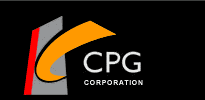Social / CSR in Tajikistan
-
AFGHANISTAN, 2015/01/20
The richest 1 % are likely to control additional than half of the globe’s total wealth by next year, the charity Oxfam reported in a study released on Monday. The warning about deepening world inequality comes just as the world’s business elite prepare to meet this week at the annual World Economic Forum in Davos, Switzerland.
The 80 wealthiest people in the world all own $1.9 trillion, the statement found, nearly the same all shared by the 3.5 billion people who occupy the bottom half of the world’s gain scale. (Last year, it took 85 billionaires to equal that figure.) And the richest 1 % of the people, who number in the millions, control nearly half of the world’s total wealth, a share that is as well increasing.
-
EUROPEAN UNION, 2014/02/08
The European Union (EU) has started financing five new projects in Tajikistan with a total worth of about 1.4 million.
The major goal of these projects is to support human rights and democracy in the country under the European Instrument for Democracy and Human Rights program (EIDHR), the EU Delegation to Tajikistan said on February 5.
One of them-two-time"Migrant Workers and Their Families: Empowered Institutions - Protected Rights" project aims at promoting and protecting human rights of Tajik migrant workers and members of their families.
-
IRAN, 2013/09/05
An Iranian entrepreneur who is the subject of US and EU sanctions for laundering oil money on behalf of Tehran is operating a successful family of businesses in Tajikistan.
Babak Zanjani’s Tajik empire includes a bank, an airline, a taxi service and a bus terminal that President Imomali Rahmon himself helped inaugurate in March.That cushy relationship, in a country where foreign businessmen say it is impossible to survive without top-level political connections, has coincided this year with increased international scrutiny of Tajikistan’s lax attitude toward money laundering.








